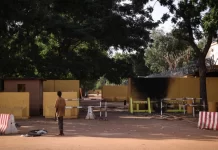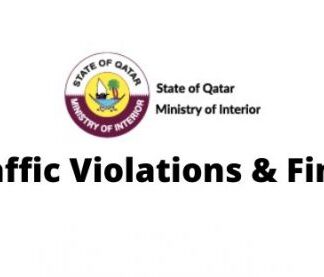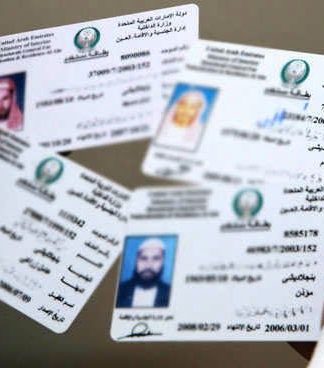DNA Bill: House panel flags fears that databank may target groups
While the Bill speaks of regional databanks apart from a central one, the Parliamentary Standing Committee strongly recommends only one National Data Bank, to minimise chances of misuse of data.
 First proposed in 2003, the Bill has gone through several revisions, by both the Department of Biotechnology and Law Ministry.
First proposed in 2003, the Bill has gone through several revisions, by both the Department of Biotechnology and Law Ministry.
The Parliamentary Standing Committee on Science and Technology, Environment, Forests and Climate Change has recommended that the government assuage concerns raised over the DNA Technology (Use and Application) Regulation Bill, 2019, including over creation of a national databank of crime scene DNA profiles and fears of communities being targeted.
While recognising the importance of DNA technology in criminal investigation, the committee, in its report tabled in Parliament Wednesday, says, “The risk with a national databank of crime scene DNA profiles is that it will likely include virtually everyone since DNA is left at the ‘crime scene’ before and after the crime by several persons who may have nothing to do with the crime being investigated.”
It adds, “These fears (regarding the Bill) are not entirely unfounded (and) have to be recognized and addressed by the government and by Parliament as well… The Committee is of the strong opinion that an enabling ecosystem must be created soon to ensure that DNA profiling is done in a manner that is fully consistent with the letter and spirit of various Supreme Court judgments and with the Constitution.”
First proposed in 2003, the Bill has gone through several revisions, by both the Department of Biotechnology and Law Ministry. It was referred to the Parliamentary Standing Committee in October 2019, soon after it was passed. A number of MPs who deposed before the panel repeated fears — expressed by members earlier too — that the Bill could be misused to target segments of society based on religion, caste or political views.
The panel’s report says, “The Committee is conscious of the fact that this Bill is very technical, complex and sensitive. A number of Members have expressed concern about the use of DNA technology — or more accurately its misuse — to target different segments of our society based on factors like religion, caste or political views. These fears are not entirely unfounded (and) have to be recognized and addressed.”
About a national databank, the committee points out that a crime scene could also hold DNA of someone who was nowhere near it at the time. Noting that “bodily material like hair may have been transported to the crime scene inadvertently by a variety of ways” and that these DNA profiles could find their way into the ‘crime scene index’, the panel suggests that these be used only for investigation but not put in a databank. And that these DNA profiles be destroyed once a trial is over, barring those of the convicted.
While the Bill speaks of regional databanks apart from a central one, the Parliamentary Standing Committee strongly recommends only one National Data Bank, to minimise chances of misuse of data.
The committee adds, “It does not, however, negate the need for such (a) legislation, especially when DNA technology is already in use. In fact, its use in recent months has exposed a false encounter in which innocents were killed, contradicting initial claims made that they were militants.”
CPI MP Binoy Viswam and the AIMIM’s Asaduddin Owaisi, who are members of the committee, had raised concerns that provisions of the Bill would lead to violations of the right to privacy. Viswam said that without adequate statutory safeguards, the Bill could prove problematic particularly for marginalised communities, including Dalits, Adivasis and religious and gender minorities. Owaisi raised concerns regarding caste profiling as well as the use of collected information “for targeted discrimination of specific groups”.
Chairman of the Parliamentary Standing Committee Jairam Ramesh said concerns raised by both the leaders had been addressed and incorporated in the report.
The DNA Technology (Use and Application) Regulation Bill aims to establish a database of “certain category of persons” such as victims of crimes, missing persons and children, unidentified bodies, as well as offenders, suspects and undertrials in cases. Such a data base, the Bill says, would help trace repeat offenders of heinous crimes such as rape and murder through DNA profiling.
The Department of Biotechnology has argued that nearly 60 countries have enacted similar legislation, and that all important matters related to privacy, confidentiality and data protection have been taken into account.
The Bill talks of a DNA Regulatory Board that would advise the Centre and state governments on issues such as setting up of DNA laboratories and databanks; and laying down of guidelines, standards and procedures for the same.
The Parliamentary Standing Committee recommends that this board be independent and “not comprise wholly of serving government officials”. It further says that DNA samples be taken only with the consent of an individual and no person be “forced to provide evidence that may incriminate him/her in any crime”.
The committee consulted legal and forensic science experts, including members of the Internet Freedom Foundation, National Law University, the Centre for Internet and Society and Gujarat Forensic Sciences University, among others.

































